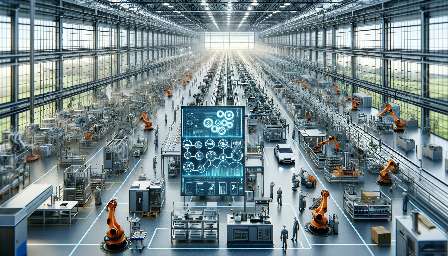Lean manufacturing is a systematic method for eliminating waste and improving efficiency in the production process. It is a philosophy that focuses on continuous improvement and value creation while minimizing resources and time wastage. This approach has a significant impact on facility layout and the overall manufacturing process, leading to improved productivity, reduced costs, and enhanced customer satisfaction.
Understanding Lean Manufacturing
Lean manufacturing, often referred to as just-in-time production, originated from the Toyota Production System (TPS) and has since been adopted by numerous industries worldwide. At its core, lean manufacturing aims to maximize customer value while minimizing waste. Waste can take various forms, including overproduction, unnecessary transportation, excessive inventory, defects, waiting times, over-processing, and underutilized talent.
The principles of lean manufacturing include continuous improvement (Kaizen), respect for people, standardization, visual management, and the relentless pursuit of waste reduction. By adopting these principles, organizations can achieve streamlined operations and create a culture of efficiency, innovation, and teamwork.
Impact on Facility Layout
One of the key areas where lean manufacturing directly impacts the manufacturing process is facility layout. The layout of a production facility plays a critical role in optimizing workflow, reducing lead times, and eliminating non-value-adding activities. Utilizing lean principles, facility layout is designed to facilitate smooth material flow, minimize unnecessary movement, and promote efficient use of space and resources.
Common strategies for lean facility layout include cellular manufacturing, where workstations are organized to create a more efficient production flow; kanban systems to manage inventory levels and production rates; and 5S methodology for workplace organization and standardization. These approaches enable organizations to create a visual workplace that promotes transparency, waste identification, and continuous improvement.
Lean Manufacturing and Manufacturing Process
Lean manufacturing has a profound impact on the overall manufacturing process, influencing every stage from raw material acquisition to the delivery of finished products. By implementing lean principles, organizations can experience reduced lead times, lower inventory levels, improved quality, and increased flexibility to meet changing customer demands.
Manufacturing processes are streamlined to eliminate bottlenecks, reduce setup times, and enhance equipment utilization. Through methods such as value stream mapping, production flow analysis, and mistake-proofing (Poka-Yoke), manufacturers can identify and address inefficiencies in their processes, leading to better resource allocation and improved overall performance.
Conclusion
When implemented effectively, lean manufacturing significantly impacts facility layout and the manufacturing process, leading to improved productivity, reduced costs, and enhanced customer satisfaction. By embracing lean principles, organizations can create a culture of continuous improvement, employee engagement, and customer-centric value creation. The result is a more efficient, agile, and competitive manufacturing environment that is better positioned to thrive in today's dynamic market.


